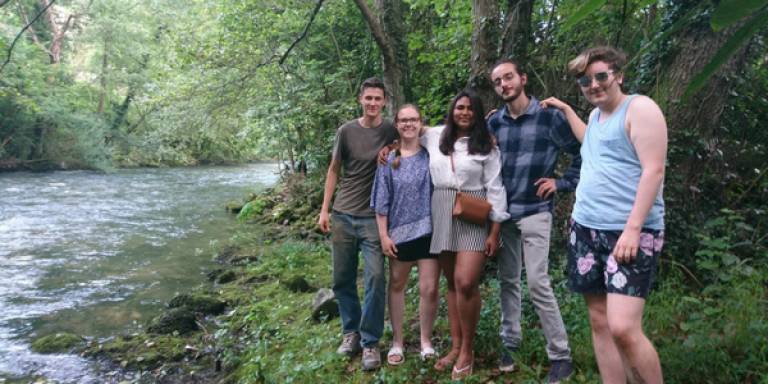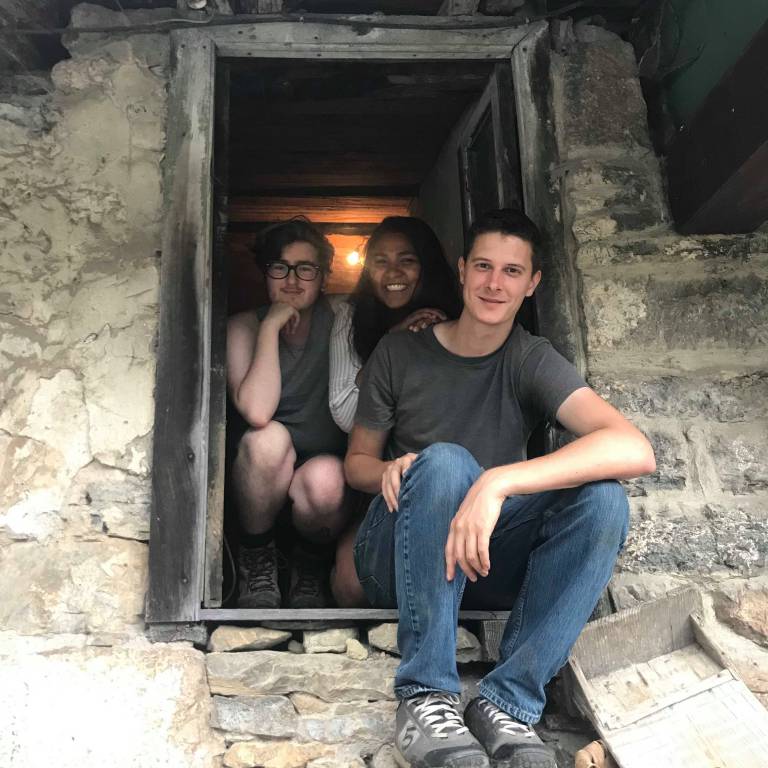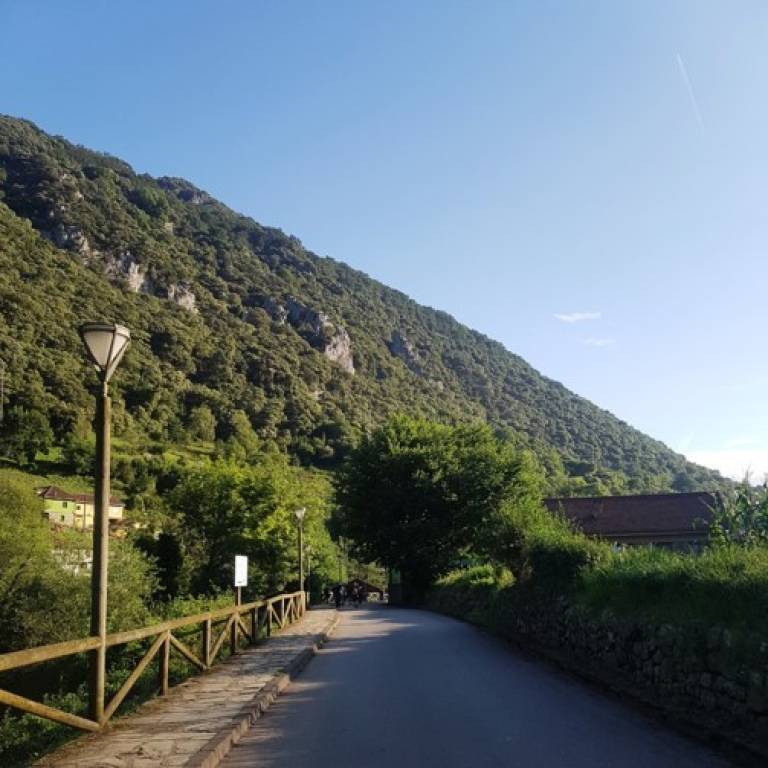Excavating in Asturias, Spain
15 March 2019
This summer, Archaeology student Fahmida Begum joined an excavation in Asturias, Spain. Did she dig the experience? Read on to find out about her time abroad!

Fahmida Begum, Archaeology
As part of my fieldwork I partook in an excavation in Asturias, Spain for two and half weeks. There were around 16 of us working on two trenches to excavate the ruins of an old village that had been demolished in an avalanche ~13-14th Century due to weather changes during the Little Ice Age. Our aim was to try and find out more about use of domestic space and the village/house structures but, alongside that we were trying to involve the Villanueva villagers in what we were doing and teach them about the history of where they were living.
As well as excavating the ruins, we worked with the local village children to teach them about what archaeology is and created interactive workshops onsite for them. This included a recreation of the old village, using mud and stones, which we then destroyed with a wheelbarrow full of water to recreate the avalanche. We also made pottery with the children and held a mini excavation for children where we hid some coins and other finds for them to discover. The interaction with the children opened up a new side of public archaeology to me which is something I would like to pursue in the future. Villanueva was made up of only around 50 people; it had only a few small shops and restaurants but, other than that, it was quite secluded. Therefore, it was amazing to expose the locals to something they may never have seen before.

Additionally, it was amazing to learn the local customs and partake in a local festival. At the festival we were able to try a variation of traditional Asturian cuisine and enjoy an evening party with the locals. After two weeks in Villanueva, it was clear to see that the Spanish enjoyed a diet of mainly bread, meat, fish and eggs. It’s safe to say that I won’t be touching another egg for a while now. I was fortunate enough to make traditional Asturian bread and even attempt the act of pouring cider: you have to have the bottle high above your head whilst the cup is kept down by the knees as you pour. I have to admit, I was anxious about the language barrier and how it would affect my trip in Asturias, however over time I picked up some basic Spanish and the locals gained an understanding for us too. After a week, the village really felt like a home to all of us.
One of the most amazing aspects of visiting Villanueva was being so close to the mountains; after working in the trench we were able to take walks up the mountain paths and also visit three bears that had been rescued now under the care of local authorities. With an opportunity like this, I was able to experience a completely different life to what I have in London: the isolation, the cuisine and the locals made the visit worthwhile.
To anyone thinking about taking a trip abroad: I’d say to just go for it. Eventually, you will forget about any worries you had and enjoy yourself!

 Close
Close

